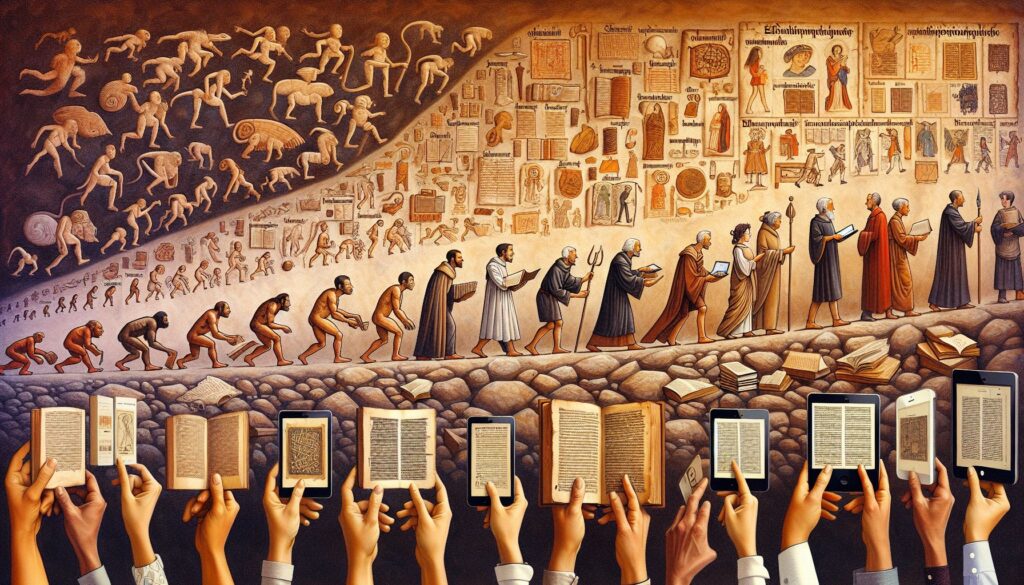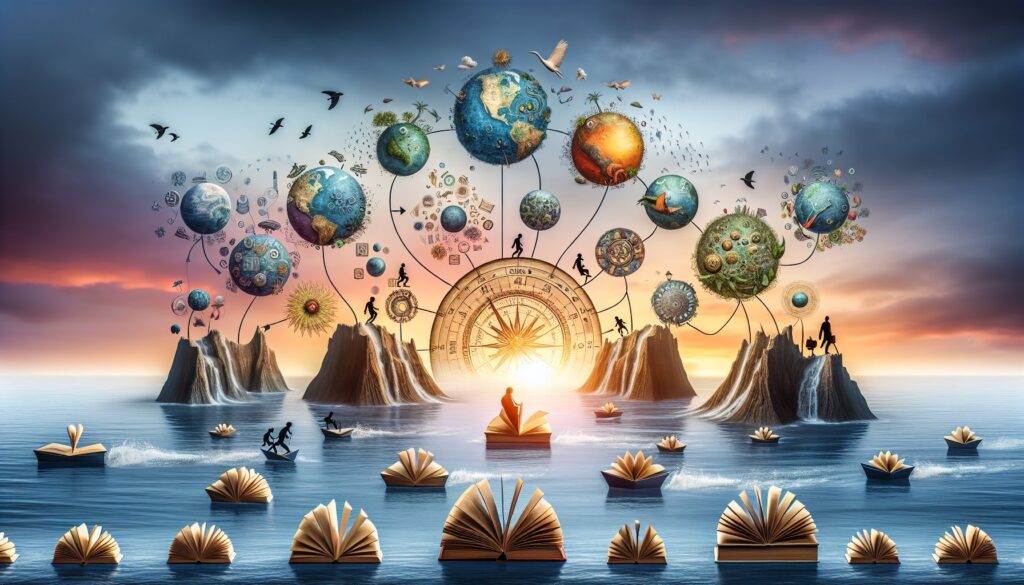There is something eternally engaging about getting lost in the labyrinth of a well-written book. It is an undeniable truth that books have a strange kind of magic. The magic of storytelling, of transcending borders of space and time, transporting us into varied universes, acquainting us to diverse characters, each brimming with their unique tales of adventure, romance, mystery, or fantasy. This intriguing journey has a different charm, the silent whispers of the pages, the smell of a new book or even a centuries-old one. There lies an inexplicable bond between the reader and these word-filled wonderlands.
 Books have navigated the currents of time, surviving, growing, and evolving. They have an inseparable bond with time, presenting a lively chronicle of the changing tides of human culture, civilization, thoughts, and ideologies. The classics like ‘Pride and Prejudice’, ‘To Kill A Mockingbird’, or ‘1984’ transport us back to their times, allowing us a voyeuristic look into the eras they represent. They build an intimate bond between their characters and the reader, offering us a profound experience, a vantage point to see the world through the prism of their times.
Books have navigated the currents of time, surviving, growing, and evolving. They have an inseparable bond with time, presenting a lively chronicle of the changing tides of human culture, civilization, thoughts, and ideologies. The classics like ‘Pride and Prejudice’, ‘To Kill A Mockingbird’, or ‘1984’ transport us back to their times, allowing us a voyeuristic look into the eras they represent. They build an intimate bond between their characters and the reader, offering us a profound experience, a vantage point to see the world through the prism of their times.
On the other hand, contemporary works offer us a mirror to our present. They talk about our reality, our experiences, reflecting our aspirations, concerns, joys and fears. The bestsellers like ‘Harry Potter’, ‘A Song of Ice and Fire’, ‘The Fault in Our Stars’, embody prevailing societal trends and sentiments. They embody our dreams, our hopes and our tears.
That’s the beauty of books – they are timeless, yet timely.
But it’s not only the times, human reading habits have also evolved, heavily influenced by the rapid strides of technology. The tangible, tactile experience of holding a book has given way to the convenience of carrying thousands of them in a thin slate – a Kindle or an iPad. Digital revolution, social media are shaping how we read, perceive and interpret the works of literature.
Audiobooks now offer an alternate route for all bibliophiles, making books accessible even when hands are busy, eyes are tired, but a heart still yearns for a good story. Social media book clubs, online literary groups, podcasts on literature are the new trends, expanding the horizons of literary consumption.
Yet, the allure of printed books still remains untouched, even as technology continues to redefine the landscape of reading.
It’s fascinating to think where the future might take us, with innovations like interactive eBooks, augmented reality (AR) and virtual reality (VR) technologies teasing new possibilities. We stand at an exciting junction where the age-old, conventional form of literary exploration and its turbo-charged, tech-savvy future coalesce. From classic forbidden books to AI-authored ones, from age-old traditional libraries to cloud-based collections – the journey has indeed been adventurous and enchantingly diverse.
Regardless of the platforms or mediums, the essence of literature remains unaltered – embodiment of human emotions, channelizing them into a narrative that strikes a chord, resonates, and transcends the barriers of age, culture or geography – to ultimately tell a tale that’s relatable, absorbing and profoundly human.
Few can deny that books, in any form, are powerful tools of empathy – opening our minds, stirring our hearts, and perpetually reminding us of our shared human existence.
In this enthralling journey of exploring the labyrinth of literature, all we need to do is keep turning the pages – walking through new doors, new worlds, armed with the age-old wisdom, yet open to the wonders of future.




